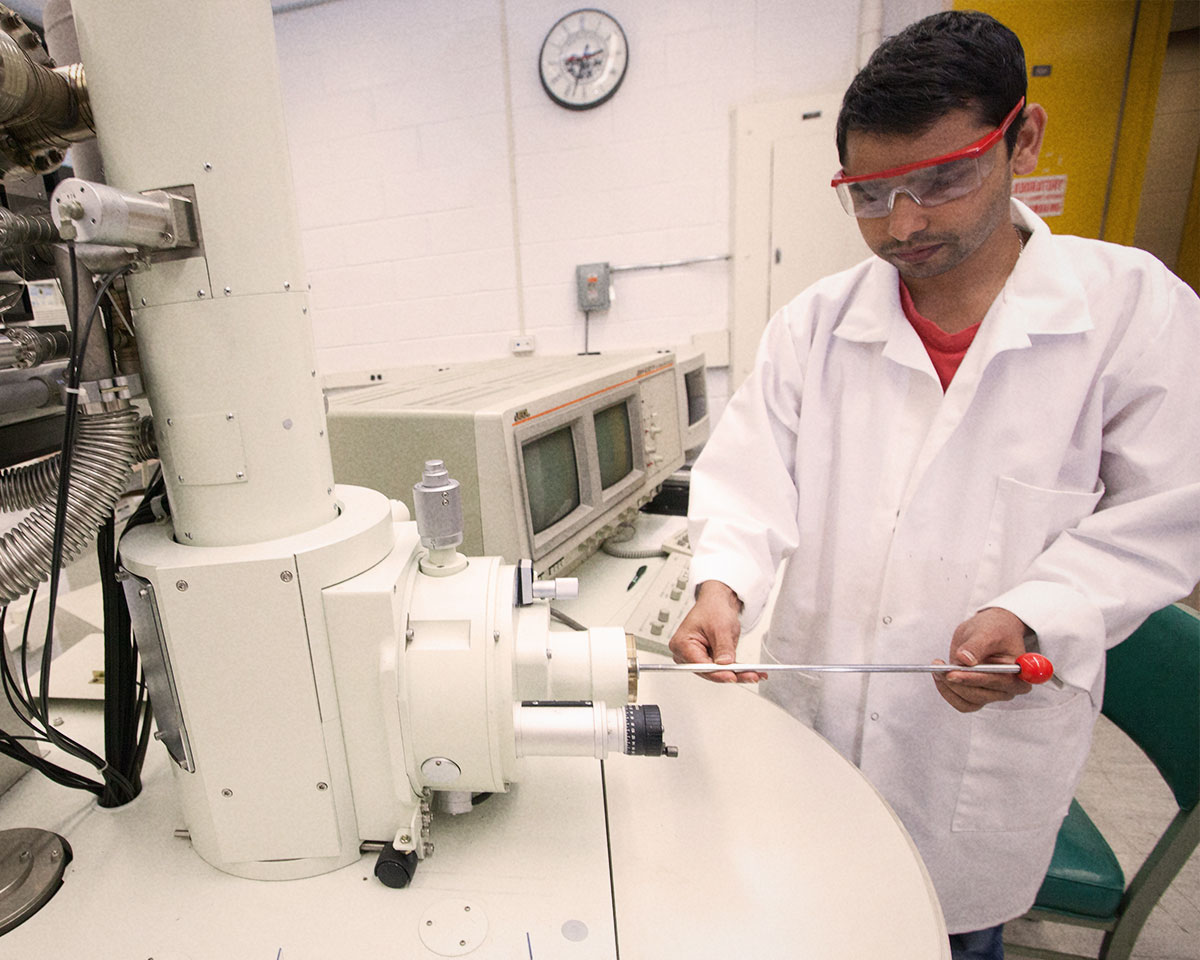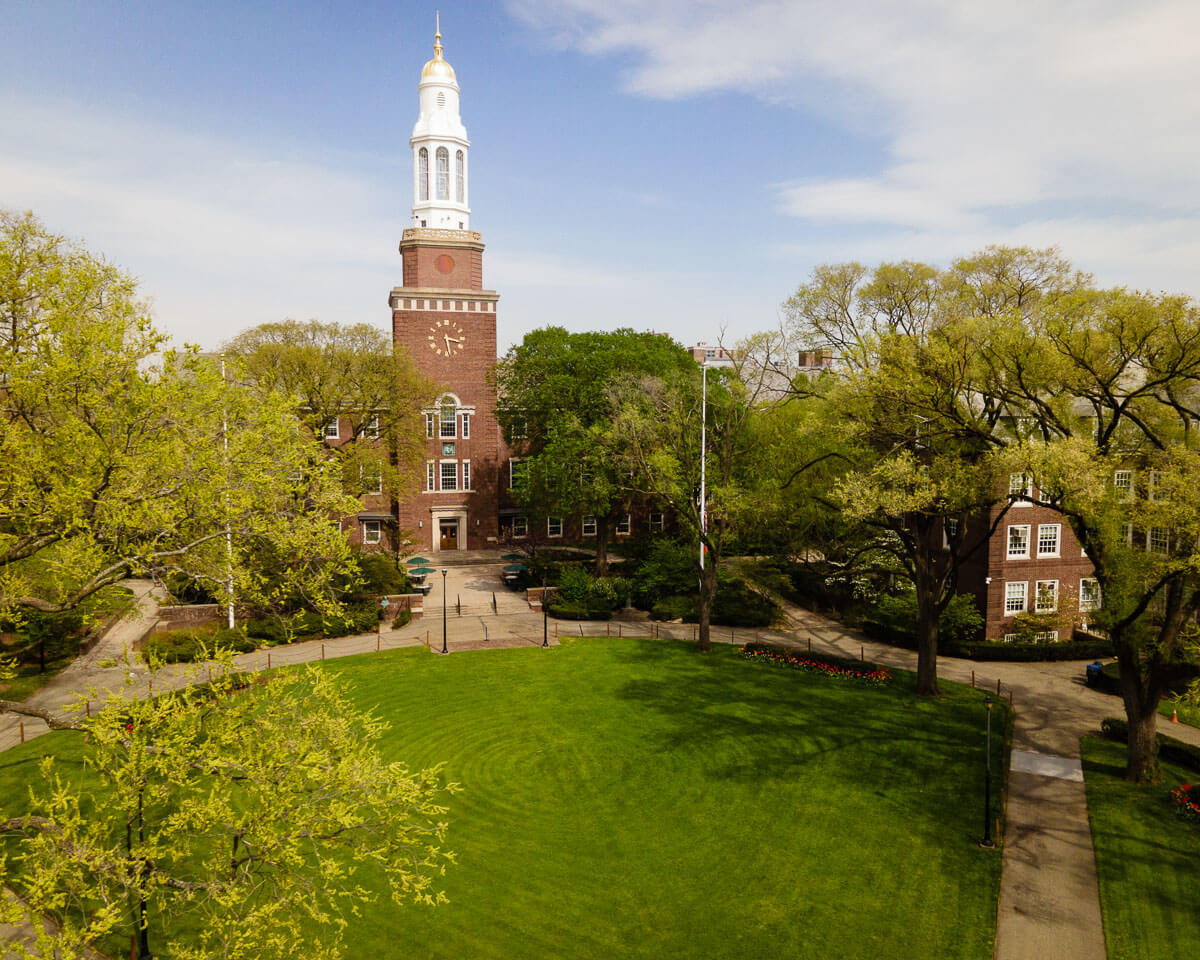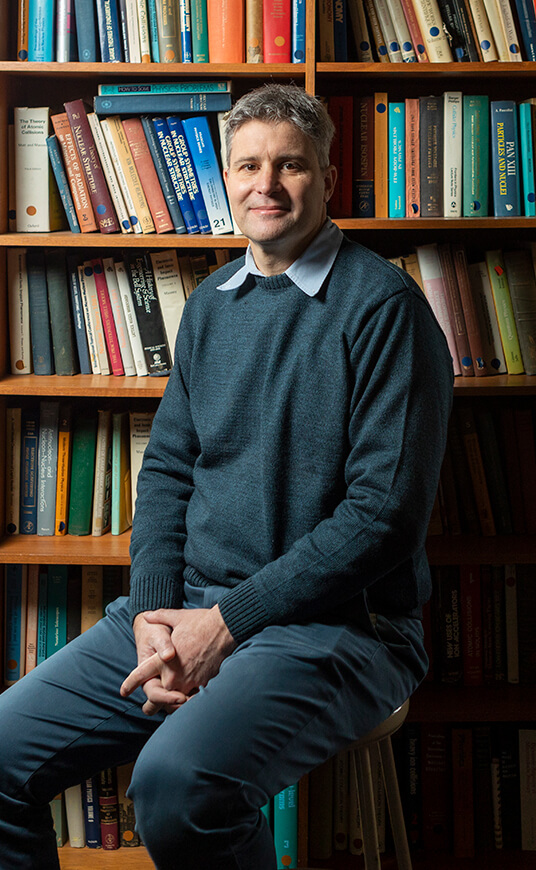Physics, B.A.
School of Natural and Behavioral Sciences
Program Overview
As a physics student, you will learn the skills needed to solve practical, real-world problems and understand how basic natural phenomena occur. You’ll study in labs with high-tech equipment, work with our highly regarded physicists, and have the opportunity to conduct research in our own labs or, during summer breaks, at other institutions throughout the United States. The Bachelor of Arts degree program in physics is designed for premedical and predental students, for students preparing for teaching in secondary school, and for others for whom a broad background in physics is desirable.

Major Details
The program information listed here reflects the approved curriculum for the 2024–25 academic year per the Brooklyn College Bulletin. Bulletins from past academic years can be found here.
Major Requirements (47–49 Credits)
Sequence for students not planning graduate work toward a Ph.D. degree in physics or astronomy.
This sequence is intended for premedical and predental students, for students preparing for teaching in secondary school, and for others for whom a broad background in physics is desirable.
To enroll in advanced physics courses, students must earn a grade of C or higher in the physics and mathematics prerequisites of the courses, unless they are excused from this requirement by the chair. A student who receives a grade of C- or lower in a required physics or mathematics course must consult the chair before registering for another physics course. The student is usually advised to repeat the course.
- a) Physics 1100 or 1150; and 2100 or 2150
- b) All of the following: Physics 3100, 3900, 3950, 3500 or 3550, 4900W, 5500
- c) Physics 3400, 3600, or 3650
- d) One physics course numbered between 3700 and 4400. With the permission of the chair, Physics 3200 and/or 3300 may be substituted for one or both of these courses required in parts c and d.
- e) Chemistry 1200, 1201, 2200, 2201
- f) Mathematics 1201 and 1206
Student Learning Outcomes
Students:
- Understand the basic physics of the course content.
- Will find consistency of content, level, and grading in multisession courses.
- Can analyze physical problems and generating solutions.
- Can present scientific facts, calculations, and experimental results in written and oral form.
- Can conduct, analyze, and interpret experimental measurements.
- Can effectively use lab equipment such as oscilloscopes and microscopes.
Degree Maps
To help you pursue your studies in the most efficient manner, and to maximize your efforts to graduate in four years, Brooklyn College has created four-year degree maps for all its majors.
View degree maps for this major and others.
Contact
Ken Miyano
1409 Ingersoll Hall
E: kemiyano@brooklyn.cuny.edu
P: 718.951.5000 ext. 2858
Or contact:
Office of Undergraduate Admissions
222 West Quad Center
2900 Bedford Avenue
Brooklyn, NY 11210
E: adminqry@brooklyn.cuny.edu
To make an appointment with an undergraduate admissions counselor, visit:
The Support You’ll Find
Brooklyn College is an integral part of the cultural and artistic energy of New York City. Our faculty members in the Department of Physics offer incomparable expertise and tremendous talent, and each brings a unique perspective to their teaching and mentoring in and out of the classroom.
Internships and Employers
Through job fairs, the internship database, and internship panels, the Magner Career Center gives students in the physics B.A. program access to career opportunities at a wide variety of employers, including:
- Boeing
- Circle Bank
- Clark University
- Data for Good
- Edeson Environmental
- IBM
- MetroPlus Health Plan
- National Diagnostic Services
- New York City College of Technology (CUNY)
- New York City Department of Education
- New York Methodist Hospital
- Princeton University
- United States Patent and Trademark Office
- Weill Cornell Medicine
- WomenTech Network




